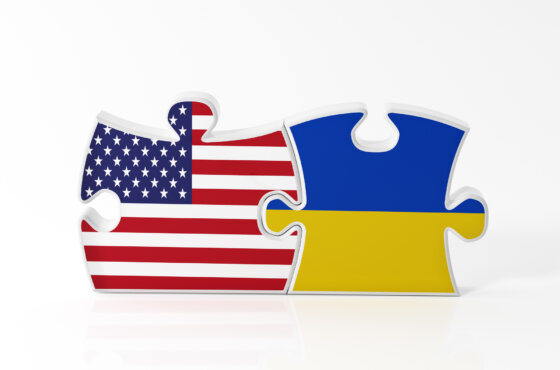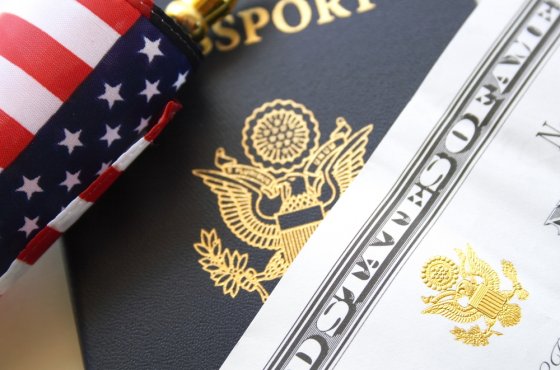Doctors die in their own way.
A doctor from Southern California told why many doctors wear pendants with the words “Do not pump out” so that they will not have an indirect heart massage in the event of clinical death. And also why they prefer to die of cancer at home.
We present to your attention an article by Ken Murray, MD, clinical associate professor of family medicine at the University of Southern California, who reveals some medical secrets:
- Many years ago, Charlie, a respected orthopedic surgeon and my mentor, found a lump in his stomach. He had a diagnostic operation. The diagnosis of pancreatic cancer. The operation was done by one of the best surgeons in the country. He even developed an operation that tripled the probability of living for five years after the diagnosis of this particular type of cancer from 5 to 15%, although the quality of life would be very low. Charlie was completely uninterested in the operation. He was discharged from the hospital the next day, closed his medical practice and never again set foot in the hospital. Instead, he devoted all his remaining time to the family. His well-being was good, as far as possible with the diagnosis of cancer. A few months later he died at home. Charlie was not treated with chemotherapy, was not exposed to radiation, and did not do operations. State insurance for pensioners Medicare spent almost nothing on its maintenance and treatment.
This topic is rarely discussed, but doctors also die. And they do not die like other people. It’s amazing not how many doctors are treated before they die compared to other Americans, but how rarely they go to doctors when it comes to an end. Doctors struggle with death when it comes to their patients, while they themselves have a very calm attitude towards their own death. They know exactly what will happen. They know what options they have. They can afford any kind of treatment. But they leave quietly.
Naturally, doctors do not want to die. They want to live. At the same time, they know enough about modern medicine to understand the limits of the possibilities of science. They also know enough about death to understand what all people are most afraid of - death in agony and death in solitude. They talk about it with their families. Doctors want to be sure that when their time comes, no one will heroically save them from death, breaking their ribs in an attempt to revive them with an indirect heart massage (and this is exactly what happens when they do it right).
Practically all medical workers at least once witnessed “vain treatment”, when there was no chance that the terminally ill patient would be better from treatment with the latest medical advances. The patient will open his stomach, put tubes into it, connect it to the devices and poison him with medicines. This is what happens in intensive care and costs tens of thousands of dollars a day. For this money, people buy suffering that we can’t even bring to terrorists. I lost count, how many times my colleagues told me something like this: “Promise me that if you see me in this condition, you will kill me”. They say it in all seriousness. Some doctors wear pendants with the words “Do not pump out”, so that doctors do not give them an indirect heart massage. I even saw one person who made such a tattoo.
Treating people, causing them suffering, is painful. Doctors are trained to collect information without showing their feelings, but among themselves they say what they are experiencing. “How can people torture their relatives like that?” Is a question that haunts many doctors. I suspect that the forced infliction of suffering to patients at the request of families is one of the reasons for the high percentage of alcoholism and depression among health care workers compared to other professions. For me personally, this was one of the reasons why I have not been in the hospital for the last ten years.
What happened? Why do doctors prescribe a treatment that they would never have prescribed for themselves? The answer is simple or not so: patients, doctors and the medical system as a whole.
To better understand the role of the patients themselves, imagine the following situation. The man lost consciousness, and he was taken to the ambulance in the hospital. No one foresaw such a scenario, so it was not agreed in advance what to do in such a case. This is a very common situation. Relatives are scared, shocked and confused in countless different treatment options.
Head is spinning. When doctors ask, “Do you want us to “do everything”?”, the family says “yes.” And all hell breaks loose. Sometimes a family really wants to “get everything done!”, but more often than not they just want everything within reason to be done. The problem is that ordinary people often do not know what is reasonable and what is not. Confused and grieving, they may not ask or hear what the doctor says. And doctors who have been told to “do everything” will do everything, whether it is reasonable or not.
This happens with our help. The situation is further aggravated by the fact that people have unrealistic expectations of what doctors can do. Many people think that artificial heart massage is a reliable method of resuscitation, although most people still die or survive as deeply disabled. I received hundreds of patients who were brought to my hospital after resuscitation with an artificial heart massage. Only one of them, a healthy man with a healthy heart, left his hospital with his legs. If the patient is seriously ill, old, he has a fatal disease, the likelihood of a good outcome of resuscitation is almost non-existent, while the probability of suffering is almost 100%. Lack of knowledge and unrealistic expectations lead to poor treatment decisions.
Of course, not only patients are guilty in this situation. Doctors make useless treatment possible. The problem is that even doctors who hate vain treatment are forced to satisfy the desires of patients and their relatives. Imagine again the emergency room in the hospital. Relatives are crying and hysterical. They first see a doctor. For them, he is a complete stranger. In such conditions, it is extremely difficult to establish a trusting relationship between the doctor and the patient’s family. People tend to suspect a doctor in their unwillingness to mess around with a difficult case, saving money or their time, especially if the doctor does not advise to continue resuscitation.
Not all doctors can talk to patients in an accessible and understandable language. Someone does it better, someone worse. Some doctors are more categorical. But all doctors face similar problems. When I needed to explain to the relatives of the patient about the various treatment options before his death, I told them as soon as possible only those opportunities that were reasonable in the circumstances. If my relatives offered unrealistic options, I simply informed them of all the negative consequences of such treatment. If the family nevertheless insisted on treatment, which I considered senseless and harmful, I suggested transferring the patient to another doctor or hospital.
Should I have been more persistent in convincing relatives not to treat fatal ill patients? Some of the cases where I refused to treat the patient and handed them over to other doctors still haunt me. One of my favorite patients was a lawyer from a famous political clan. She suffered from severe diabetes and terrible circulation. A painful wound appeared on her leg. I tried to do everything to avoid hospitalization and surgery, understanding how dangerous hospitals and surgery are for such a patient. She nevertheless went to another doctor whom I did not know. That doctor decided to operate on it - bypass the thrombosis vessels on both legs. The operation did not help restore blood flow, and postoperative wounds did not heal. Gangrene went on the feet, and both legs were amputated to the woman. Two weeks later, she died in a famous hospital where she was treated.
Often, both physicians and patients become victims of a system that encourages excessive treatment. In some unfortunate cases, doctors simply get paid for each procedure they do, so they do everything they can, regardless of whether it helps the patient or hurts, just to make more money. Doctors are much more often afraid that the patient’s family will judge them, so they do everything that the family asks, without communicating their opinion to the patient’s relatives so that there are no problems.
Even if a person has prepared in advance and signed the necessary papers, where he expressed his preferences about treatment before death, the system can still “gobble up” the patient. One of my patients, Jack, was 78 years old and had been ill for many years and had undergone 15 major surgeries. After all the troubles, Jack absolutely confidently warned me that he never, under any circumstances, wanted to end up on artificial respiration. And then one day Jack had a stroke. He was taken to the hospital in an unconscious state. Jack's wife was not there. The doctors did everything possible to pump him out and transferred him to intensive care, where he was connected to an artificial respiration apparatus. Jack feared this more than anything in his life! When I got to the hospital, I discussed Jack's wishes with the staff and his wife. Based on my documents, compiled with Jack's participation, I was able to disconnect him from life-sustaining equipment. Then I just sat down and sat next to him. Two hours later he died.
Despite the fact that Jack made all the necessary documents, he still did not die the way he wanted. The system intervened. Moreover, as I found out later, one of the nurses naklyuznichala me because I disconnected Jack from the machines, and therefore committed the murder. Since Jack had prescribed all his wishes in advance, I had nothing. But still the threat of a police investigation strikes terror in any doctor. It would have been easier for me to leave Jack in the hospital on the equipment, which was clearly against his desire, prolonging his life and suffering for a few more weeks. I would even earn more money, and Medicare insurance company would get an extra $ 500000 bill. It is not surprising that doctors tend to heal.
But doctors themselves are still protected from this. They see the effects of over-treatment every day. Almost everyone can find a way to die at home peacefully. We have many opportunities to ease the pain. Hospice care helps mortally ill lovers to spend the last days of life comfortably and adequately, instead of suffering from vain treatment. It is amazing that the people who are being cared for by the hospice live longer than people with the same diseases that are treated in hospital. I was pleasantly surprised when I heard on the radio that the famous journalist Tom Vicker “died peacefully at home surrounded by family.” Such cases, thank God, are increasingly common.
Several years ago, my older cousin Torch (torch - torch, torch; Torch was born at home by torch light) suffered a cramp. As it turned out later, he had lung cancer with metastases to the brain. I agreed with different doctors, and we learned that with aggressive treatment of his condition (which means three to five visits to the hospital for chemotherapy), he will live for about four months. Torch decided not to be treated, moved to live with me and only took pills for brain swelling.
For the next eight months we lived in our own pleasure, just like in childhood. For the first time in my life we went to Disneyland. We sat at home, watched sports and ate what I was cooking. Torch even got better at home grub, and not hospital food. He was not tormented by pain, and the mood was militant. One day he did not wake up. For three days he slept in a coma, and then he died. The cost of medical care for eight months is about 20 dollars (the price of the pills he took).
Torch was not a doctor, but he knew that he wanted to live, not to exist. Do we not all want this? If there is a super-duper care for the dying, then this is a worthy death. As for me personally, my doctor is notified of my wishes. No heroism. I will quietly go into the night. Like my mentor Charlie. Like my cousin Torch. As my colleagues are doctors.
Subscribe to ForumDaily on Google News










